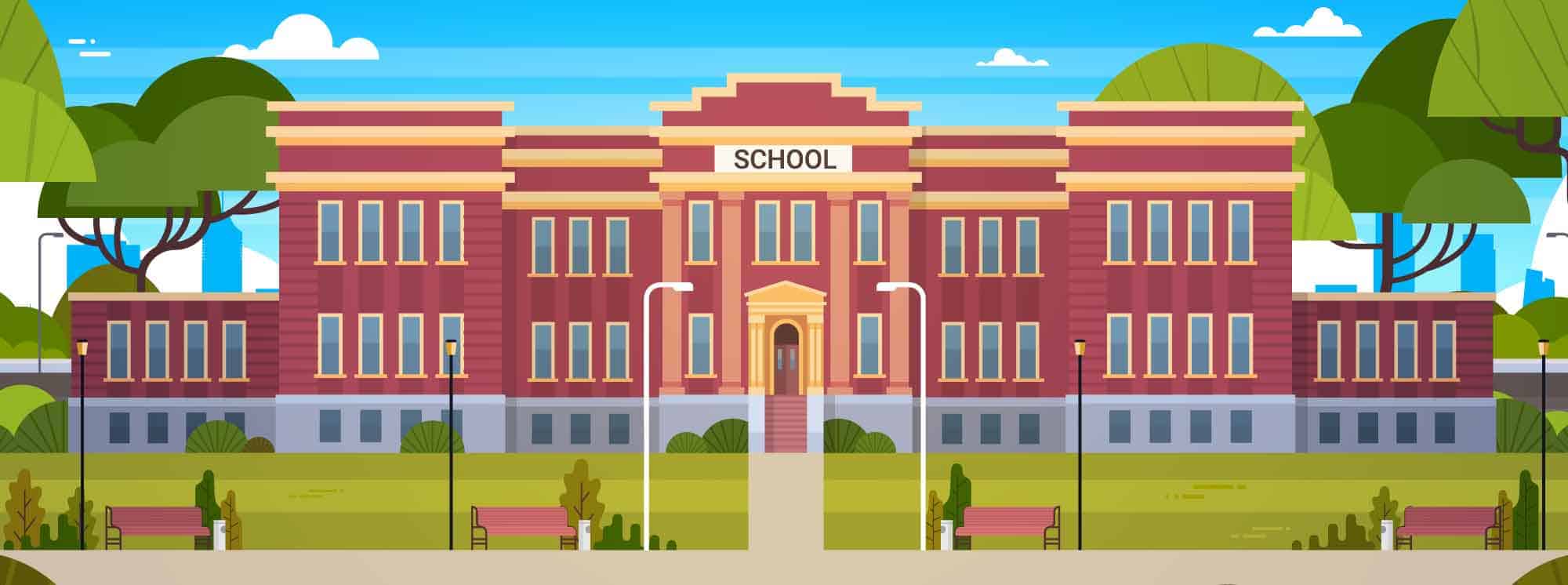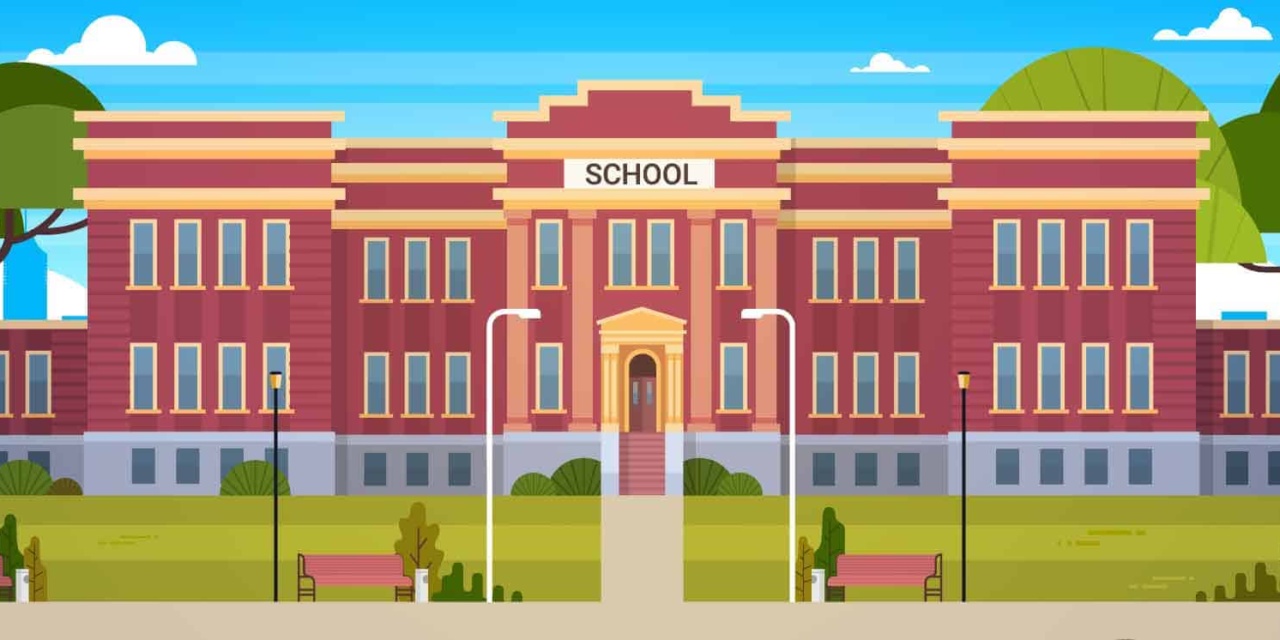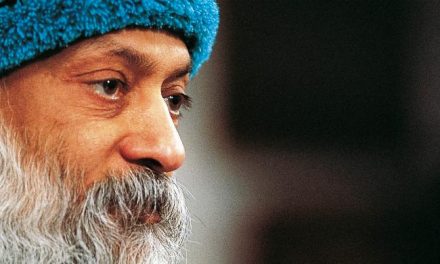VOLUME X – CHAPTER 1
What My School Would Teach

The big question today is whether what the students learn is what they will use later on? In this world outside one is expected to “Perform”. Do our schools train the children to “Perform”? The Work life outside requires a certain emotion preparedness and our children are not emotionally equipped to face the multitude of situations that arise with the work.
A student of Class II cut her finger with a blade when the HM asked what she will say, if her mother asked. The child immediately said, “I will say Miss cut my finger”. She was trying to save herself and put the blame on another.
It is this tendency we find in work life also. When something goes wrong, you at once push the blame on another. The students are “using their knowledge to gain and not grow, to take and not give”.
What we teach today does not address the needs of tomorrow. Our world faces grave perils – fast depletion of fossil fuels, disappearance of eco-cover; increasing disunity, absence of values, lack of faith and trust and lack of social harmony.
What do we mean when we say “Educate” the children? To build them-that is the old cry. But today as Meera Seth says, “Education today must help repair, renew, restore, revive and rescue this planet”. To her the Teachers college & the schools must both develop faith and “Humanology” that matures life and not “Technology”.
Students today lack of self-esteem because their education is not value based. They think that the world outside is bad and wrong forgetting they are part of it.
It is always a challenge and not self-pity that will help a student to evolve. Our school should help them to make choices correctly after weighing the pros & cons.
Let us make them realise that giving or accepting a bribe only is not corruption. But even not giving your best and fullest to a work – that is corruption. When there is a problem situation teach them to keep their verbal flow so that the other person is not estranged. When violent, 5000 college students from Coimbatore came to Sri Rama Krishna Mission Vidyalaya during 1965 anti-hindi agitation, we three Dy. Director and a Swamiji engaged them for 3 hours with a verbal flow first supporting their view and later on helping them to understand the issue in an All India perspective. This verbal flow reduced their high temperature.
Our school will provide a broad spectrum of career choices available to them. In the process of making choices our school will help them make up their minds not in a hurry but after calm and due consideration. When a student makes a wrong choice we don’t decry or berate him, we don’t get annoyed and scold; we make it a starting point of respecting him. We don’t make fun of his choices; we make him realize his error; we help him to look within and think about his choices in a happy honourable way.
The author’s grandson went to XII class in June 2010 and his teacher wanted him to become the School Pupil Leader. He opted out and accepted House Captaincy. Even though the author had earlier advised him to accept what his teacher asked him to do, but two days later he told the author “I feel the House Captaincy involves a lot of responsibility. Whereas the SPL post is purely ornamental. Can I change my decision?”
The author told him, “you have thought and taken that decision earlier. It is four that you adhere to that. As you say the SPL post is just an ornamental post. The House Captain has a lot of responsibility of organising house activities, selecting people, arranging guest speakers, providing leadership to the whole house and this will show up as an important part of your resume at a later date when you seek employment”. These words soothened his emotion and made him say “I shall be House Captain”.
Our school will adopt the American concept of advisors who give all the soft skill training and also oversee the pupil’s “overall behaviour conduct, approach and attitude”. There will be a sort of filial relationship between them both. The advisor will be neither soft like a parent nor harsh like a teacher but will act like a sports coach. We will strengthen the most important passage from high school into adult hood.
Our school will help them to choose from many goods and many evils – to choose a better good or a lesser evil?
Our school will help the students to absorb values not by hearing or reading but by observing, practising and by experiencing them. Environmental issues can’t be learned in an air-conditioned class room.
Our school will create passion in the pupil towards the fields chosen by them and also develop compassion towards others.
Our school will enable them to step into the world outside with a greater level of confidence, maturity and ease.
Brining about this change, this transition is a difficult responsibility. How to make them acceptable by society?
How to prepare them for humanology “to think right, to pull from the heart and do good”. How to insist a sound value system? How to mould the student into a person who will not grab but who will give, who will add value.
Our school will not encourage competition with a killer instinct but help them showcase their relative performance levels – defeat, vanquish victory – these words will not be in their vocabulary.
Our school will help them to respect everyone and everything and co-creation for the common, greater good.
Our school will strive to produce value driven leaders who will act as trustees of the institutions or nations wealth.
Our school will develop competencies or useful to him in his later life- to lead a whole some purposeful life.
Our school will develop them as upright persons with a high degree or personnel integrity – become good hardy and successful children.
James Michener, the great writer poses a big question –
“where does education STOP?
where does education START?”
Our school would teach the students to realize that those who desire to achieve something should embark on a work of great proportions.
Our school will teach then that it takes years to discover a new drug that it takes months before a play is stage.
Our school will teach that great achievements are possible only by people with deep devotion and dedication and then such great work can’t be evaluated on a time scale.
Our school will teach them that if they want their country to remember them they should undertake big projects. For that the present day education does not prepare them. They have to re-educate themselves often. Otherwise they will become stagnant pools whose yesterday’s knowledge won’t be useful to solve tomorrow’s problems.
So our school would prepare them to for all that he will have to face and do in his later work-a-day world. Our school will inspire and motivate him to re-educate and reinvent himself constantly and continuously.
Michener says that during the closing days of World War II in the last year or so Admirals and Generals took courses in foreign languages to prepare themselves for any posting after the war.
He narrates his own experience in Swarthmore College which he attended. The professors told their group “life does not consist of taking courses in small segments. A productive life consists of finding huge tasks and mastering them with whatever tools of intelligence and energy we have. We are going to turn you loose on some huge tasks”. Pick out 3 fields that interest you for the next two years go to the library and learn what you can about your fields. At the end of two years we will bring in some outside experts from Yale and Harvard, whom you have never seen and they will determine whether or not you have educated yourselves.
Two years – they had an experience in intellectual grandeur. Their professionals felt by testing them, they would also be tested. So they helped them to gain as through an education as a student could absorb.
At the end of two years those professors came and for a week they put searching questions and then proclaimed, “You have the beginning of a real education”.
Michener says he learnt how to learn, how to organize and how to write an assignment.
Taking Michener’s advice our school would provide a good grounding in liberal arts also besides Science and Math because “Tomorrow’s world will always depend of the man with broad human knowledge”.
Anything requiring knowledge of men, a balanced judgment a gift for conciliation and above all a constant weighing of good vs bad. “Only man with broad education can perform such tasks” says Michener.
Our school will make them stretch their work to the limit of their ABILITY and discipline their minds. We realize that if we don’t motivate them to tackle big jobs now, we are committing a big moral crime. Our school will challenge them to rise to the occasion so that they prepare themselves for the Himalayan tasks awaiting them in future.
In this connection it will be good to remember the wise words of Robert A. Heinlein who said:-
“A human being should be able to change a diaper, plan an invasion, butcher a Hog, conn a ship, design a building, write a Sonnet, balance accounts, build a wall, set a bone, comfort the dying, give orders, take orders, cooperate, act alone, solve equations. analyse a new problem, pitch manure, program a computer, cook a tasty meal, fight efficiently and die gallantly. Specialisation is for insects”.
Our school will try to teach many of these things and make each student a complete man.
Our school will teach values that lead to a commitment to peace.
Our school will give students a voice in decision-making.
Our school will be an equal opportunity school.
Our school will have clear fixed norms for behaviour.
Our school will nod con-fliers in the bud.
Our school will dissuade students from anti-social and anti-community behaviour.
When the primary class children were asked to walk from one wing to another wing, one student asked, “Miss do we walk in a line or can we walk like human beings?” line implied restriction and discipline; “human beings” implied freedom.
Our school will teach the students to understand the value and importance of both discipline and freedom.
Our school will bring to teaching the rigour and precision of aerospace engineering and the compassion and empathy of the sanyasis of Sri Ramakrishna Math.
Our school adopting the words on the H.O.D of English in Cambridge University, (U.K.), will teach pupils how to solve problems that we don’t yet know exist and will not train them in obsolete techniques.
Our school will lay equal emphasis on the teaching of the liberal arts “because it will teach them to do without the money which makes them unable to acquire” in the words of Principal Sir Robert Wood.
We will introduce vocational education at the high school level in Class IX after schooling up to Class VIII. These students can join polytechnics without difficulty. Our vocational education programmes will be relevant to our area.
We will conduct the dots left unrelated today between school education and industry readiness. We will equip our students with competences that will enable them to have a smooth transition from academics to work.
Like the Oakhan School in London or the Brunswick School in Connecticut or The Doon School in Dehradun, India, our school will endeavour to create the “Whole Boy”.
*** We will train our students to “pore over books” and will hold them to memorise lot of poems which will help them in later life. We will train them to negotiate how to move from level I to level II, negotiate with teachers, colleagues and all others and learn theory of developing long standing relationships. Our school will instil in them a sense of fair play.
Our school will help the students to think beyond the classroom to find the answers in an unpredictable situation. Our campus will have an academic ambience where there is no fear of compulsion. A sense of responsibility will be fostered and the seeds of leadership will be firmly planted.
Our entrance examinations will not test just knowledge but critical reasoning and the personality of the child. We will develop our students to live in a plural society. We will not value a student on his wealth, position or status but by his spirit of service.
We will focus on the 2 Culture problems—Academic Excellence and Practical Knowledge. Striking a balance between purveying of knowledge and preparation for life will train them to develop a holistic approach to every issue our curriculum will be suited to industry needs. It will be focussed on the development of mind, body and attitude. It will develop in them an analytical bent of mind. We will use memory strengthening exercises as a tool for correction – write a page of your mistake.
Our school will train them not to see barriers which adults see, make them techno savvy and adapt to change pretty fast. Our school will open out their minds to the world, provide them challenges to learn, and articulate well the knowledge they have gained. We will help them to become multi-faceted and remove the sense of fear from their minds. We will train them to think independently, not to take hasty decisions, be patient and unselfish.
We will help them develop mature thinking, take a great interest in social causes, and the will to pursue diverse interests. We will train them not to cut corners. And be patient to wait for answers to their questions and also avoid rushing to conclusions.
We will help them to retain their childhood and innocence. We will train them to develop human interaction and not be cyber-focussed. We will help them to utilise resources and have a passion to achieve getting equipped to perform multi-tasking.
ONE WHO KNOWS (VOLUME X – CHAPTER 1)
(DIMENSIONS OF THE LIFE AND WORK OF A PRINCIPAL)

1321) One who knows that his character also plays a vital role in deciding if others will grant us their trust.
1322) One who knows that from ownership comes a sense of responsibility and responsible staff will build a responsible organisation.
1323) One who knows that if he takes care of his staff with compassion and empathy, they will take care of the institution’s growth.
1324) One who knows that there is no dividing line between execution and result.
1325) One who follows Balav Balachand’s Triple mantra for success
a.Mobility
b.Humility
c.Nobility
1326) One who knows that HR encompasses
a.Talent acquisition
b.Talent management
c.Staff relations
d.HR policies
e.Staff retention
1327) One who always first talks about the person and then only about his work.
1328) One who knows that while every role has a lot to deliver, every person should have a fair opportunity to do what they like to do and himself be the guarantor of respect.
1329) One who knows that though the teacher can be taken off teaching, none can take teaching off the teacher.
1330) One who knows that the bull mastiff-dog-has a sixth sense – the instinct to modulate its behaviour in accordance with human species, to have a place for everyone in its heart and for everyone to have a place in its social pecking order, the innate power to discriminate between different human beings, their relevance to context and institution.
From this he has learnt
a. Importance of mutual respect
b. Routine and predictability in interaction
c. Being assertive without being offensive or aggressive.
d. Integrity and faithfulness
e. Demonstrating love when it is due.
1331) One who tells staff that rules help us to domesticate, organise and solve
One who asks the staff:-
How shall we view it? The Lakshman Rekha?
a. A symbol of love created by a young man to protect his sister-in-law?
or
b. A symbol of oppression created by a man to control the woman’s movements?
1332) One who knows the meaning of the term “HEART KETING” coined by Steve Van Bellaghen of Ghent Management School in Belgium, Meaning:-
Achieving a positive impact on customers (parents, staff and students) as a whole to develop a personal emotional attachment to the institution which will be valued more highly by them than loyalty programs and that it involves adding a human touch to the relationship appealing to the parents’ heart than to their wallet.
1333) One who knows that he should set store in values of:-
Fairness
Accountability
Transparency
Then the rest will fall into place.
1334) One who knows that legacy is created by the impact of his work on the educational field, that it is the outcome of his outcomes and remarks that king Indradyumna was remembered not for the cows he gifted but for the lake created by the dust created by the kicking of those cows.
1335) One who knows that though as a leader staff’s questions may challenge his ego and it is not fun to have people question his every decision, but still he allows, welcomes their question because it leads to better decisions, better engagement, better execution and ultimately better results.
1336) One who has understood Peter Drucker’s definition of a leader
“You are like an orchestra conductor. You are not the person playing the music each one playing music; is better than you are; but you are the person who is making sure the music happens.
Make sure you are the guy playing the music if not, you will only face the music”
1337) One who knows that being authentic is being genuine – to whom – to himself first.
1338) One who knows that
Personal victory always precedes public victory
and
Being authentic means doing what he should be doing and not doing what he should not be doing at any cost.
1339) One who knows that the biggest fool in the world is the one who is fooling himself – knowing that he is fooling himself but not realizing that he is fooling himself; being aware of her action, but doesn’t realize its consequences.
1340) One who knows that his knowledge should enable him to make use of it to make the right decisions.
1341) One who knows that to know to read and not read is equal to not knowing to read.
1342) One who knows that most of the time people become what the world wants them “To become” and “Not what they wanted to become” and that this is the recipe for sheer frustration, unfulfilled life, hopelessness and unhappiness.
1343) One who knows that many people have passion but not action and they either don’t know to do or they know what to do but don’t.
1344) One who knows to have a cause where he doesn’t have a choice but to be authentic to himself
1345) One who knows that it is the “Why” factor that pushes him out of the comfort zone.
1346) One who knows that it is this why factor that will
a. Make his work when he is tired
b. Make his work when he feels sleepy
c. Make his work when the rest of the world is resting
d. And become the best in the field.
1347) One who is so good that people can’t ignore him
1348) One who follows parents 80/20 rule focusing on doing the few right things which give maximum results.
1349) One who believes in Kaizen – continuous small improvements by practising on a small goal for a period of time till it becomes a habit.
1350) One’s discipline which is doing what he should be doing when he should be doing it, whether he feels like doing it or not – combines what when and feel
a. What – action he decided to take for meeting change
b. When – the time of the day when he is expected to perform that action.
c. Feel – his mental state at that time whether it would allow him to perform or not.
1351) One who knows that to get what he has never got, he should do what he has never done
1352) One who knows that the reputation of the leader are built really on being ethical, credible, authentic and transparent and knows that with his reputation he can win the world.
1353) One who respects the boss in office and enjoys his friendship outside and never uses personal relationship to gain personal benefits.
1354) One who measures and analyses everyday communication and every engagement and knows that
Efficiency is Vital
and
Effectiveness is Critical
1355) One who does not want some junior staff to be at the receiving end of his temper just because he is high strung
1356) One who sees what is happening in his neighbourhood and wants to adopt the same policy because he finds the smiling faces across the fence and wants to see why they are smiling more than his people.
He starts feeling where the shoe pinches and where the pain points are.
1357) One who knows that at the end of the day, the ROI (Return on Investment) is not the results, but the kind of legacy he is creating and the kind of name, fame and reputation he would have created for himself.
1358) One who understands and follows Mukesh Ambani’s observation:-
Running an institution is like playing cricket; being a consultant is like watching it as commentator
1359) One who has imbibe Anand Piramal’s advice:-
“When you have no option but to swim or sink you somehow learn to float”.
1360) One who knows that
Conviction
Credibility
Competence
are the basic requirements of a good speaker.
THE God ward path is Karma, based on Dharma. That is the path also towards joy, contentment and, therefore, of strength. Now, the path has become hidden by an overgrowth of briar and bush; the bridges and culverts are in disrepair. People have forgotten the goal, the path and the habit of walking on it. That road is the only refuge; it must be trodden tomorrow, if not today, for the goal lies at the end of that road. It was laid down, centuries ago in the Vedas, beyond the memory of history. “Sathyam Vada”, “Dharmam Chara”: the Vedas call on you. – Bhagawan Sri Sathya Sai Baba
Jai Sairam





